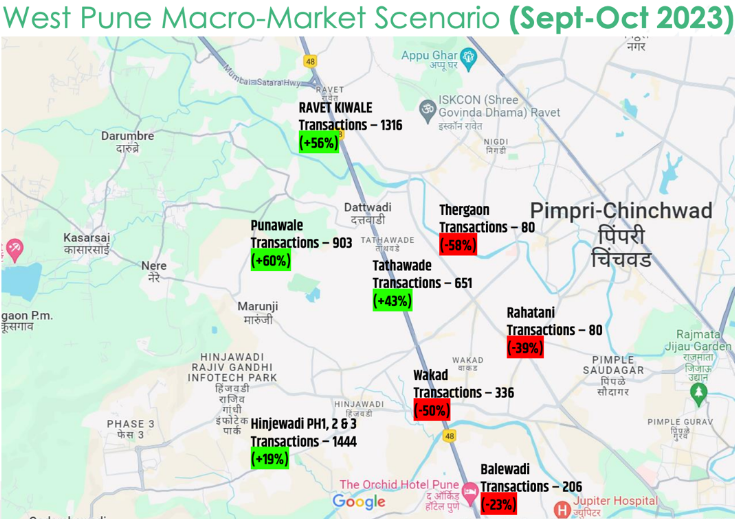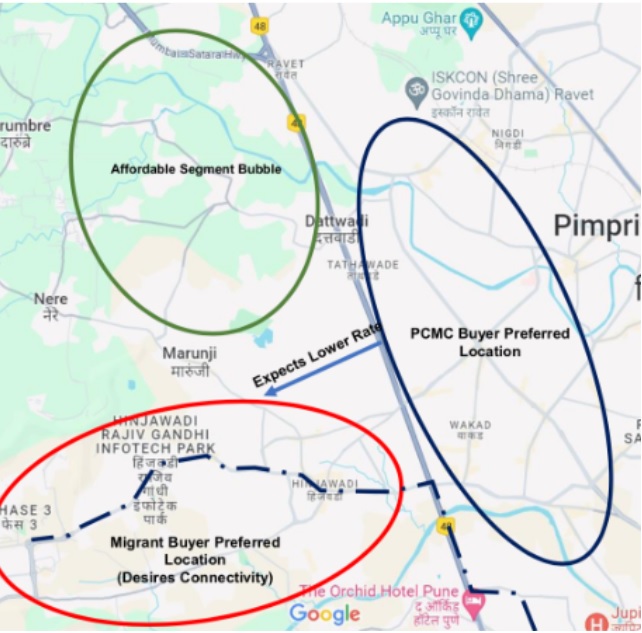Augmented Reality (AR) has emerged as a groundbreaking technology with transformative implications across various industries. In particular, the real estate sector has witnessed a significant paradigm shift with the integration of AR solutions. As we delve into 2024, the influence of AR on real estate market trends continues to evolve, reshaping how properties are marketed, experienced, and personalized. A reliable source confirms that 67% of homebuyers express high satisfaction with virtual tours. AR empowers buyers to take charge of their property exploration, thereby enhancing confidence and streamlining the home search process. As we anticipate developments in 2024, the smooth incorporation of augmented Reality into real estate endeavors foresees a future characterized by heightened immersion and efficacy, where buyers play an active role in sculpting their journey through property exploration.
-
What is Augmented Reality?
Augmented Reality blends digital elements with the physical world, offering an enriched and interactive experience. In real estate, AR applications overlay virtual information onto physical properties, allowing buyers to visualize spaces more vividly. This technology enhances property exploration, enabling clients to envision potential modifications and configurations with remarkable accuracy. For real estate professionals, AR streamlines the showcasing process and fosters deeper client engagement, ultimately expediting the sales cycle.
As per Wikipedia, Augmented Reality changes how one perceives the existing real-world environment, while virtual Reality entirely substitutes the user’s real-world surroundings with a simulated one. Additionally, augmented Reality is often used interchangeably with mixed Reality, and there’s also shared terminology with extended Reality and computer-mediated Reality.
-
The Rise of Virtual Property Tours:
Virtual property tours have surged in popularity, propelled by augmented Reality in the real estate industry. This trend took a high, especially during the pandemic. Potential buyers preferred first to check virtual property tours rather than directly visiting the site. This helped them get a fair idea of the site, as normal pictures only do justice sometimes. Since the pandemic, the trend has become a mandate. Through AR-enabled platforms, prospective buyers can embark on immersive property tours from the comfort of their homes. These virtual experiences offer unparalleled convenience and accessibility, accommodating the fast-paced lifestyles of modern consumers. By providing detailed and interactive walkthroughs, AR-driven tours facilitate informed decision-making, minimizing the need for physical visits and expediting the sales process.
-
Personalized Property Customization:
AR technology empowers buyers with personalized property customization capabilities. Innovative AR tools allow clients to visualize design options and modifications in real time, fostering a deeper connection with prospective properties. From adjusting room layouts to experimenting with interior décor, AR facilitates a tailored exploration experience that resonates with individual preferences. This level of customization enhances buyer satisfaction and elevates overall engagement, driving greater interest in listed properties.
-
AR-Enabled Property Marketing:
With the advancement in technology, Augmented Reality and real estate go hand-in-hand. AR has revolutionized property marketing and advertising strategies, offering dynamic and interactive content experiences. By integrating AR elements into marketing campaigns, real estate professionals can captivate audiences and differentiate their listings in a crowded market. From interactive 3D property showcases to augmented reality walkthroughs, AR-enhanced content captures attention and drives higher engagement levels. These immersive experiences leave a lasting impression on potential buyers, increasing the likelihood of conversion.
-
Enhanced Real Estate Education and Training:
AR is reshaping real estate education and professional training programs, providing immersive learning experiences for industry professionals. Through AR simulations and interactive modules, aspiring real estate agents gain practical insights into property showcasing, negotiation, and client interactions. Additionally, AR facilitates continuous learning and skills development for established professionals, keeping them abreast of industry advancements and best practices.
Real estate professionals can gain a competitive advantage through the implementation of augmented Reality (AR), which transforms property listings into interactive experiences. As reported in a Hindustan Times article, virtual property tours enabled by AR foster stronger connections with potential buyers, resulting in a notable 40% surge in listing clicks, amplified website traffic, and, ultimately, heightened sales. Furthermore, as per the real estate trends, properties equipped with virtual tours attract 49% more qualified leads, thus boosting visibility and positioning amidst stiff market competition.
-
Overcoming Challenges and Adopting Best Practices:
Implementing AR technology in real estate comes with its share of challenges, including technical complexities and adoption barriers. However, in 2024, these challenges will be resolved as the technology develops. Overcoming these hurdles is essential for harnessing the full potential of AR-driven proptech solutions. Real estate professionals can mitigate challenges by investing in user-friendly AR platforms, providing comprehensive training and support, and fostering a culture of innovation within their organizations. By embracing best practices and strategic planning, stakeholders can maximize the benefits of AR integration and stay ahead of the curve.
-
Forecasting Market Trends for 2024:
As we look ahead to 2024, AR-powered real estate technology is poised for continued growth and innovation. According to forecasts, the adoption of AR applications, platforms, and services within the industry is expected to surge, driven by increasing demand for immersive property experiences. Real estate professionals must anticipate emerging trends and capitalize on AR opportunities to remain competitive in the evolving market. By leveraging AR technology effectively, they can enhance customer engagement, streamline operations, and drive real estate sales.
Conclusion
Augmented Reality represents a game-changer in the real estate industry, revolutionizing how properties are marketed, experienced, and customized. As we navigate the real estate market trends in 2024, staying attuned to evolving AR trends and technologies is paramount for success. By embracing AR-driven innovations, real estate professionals can elevate their practices, deliver unparalleled value to clients, and stay ahead of the competition.
In this era of digital transformation, real estate firms are integrating AR into their processes. This gave rise to the term ‘PropTech,’ which means the use of information technology (IT) to help individuals and companies research, buy, sell, and manage real estate efficiently. Beyondwalls is one such proptech and real estate marketing agency, which is at the forefront of pioneering advanced solutions, facilitating a seamless convergence of technology and real estate excellence.

























